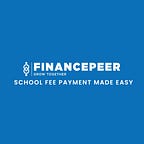4 Common Student Loan Problems and Their Solutions
Introduction
An education loan is an amount of money lent to fund post-secondary or higher education expenditures. Education loans are meant to offset the cost of college, textbooks and materials, and living costs while the applicant is earning a degree. Payments get often postponed when students are in the university, and dependent on the provider. They get postponed for an extended six-month span following graduation. This era gets alluded to as the “time of grace.”
1. The type of loan most suitable to the lender
There are various types of education loans offered to the student by different governing bodies. It is important to understand for the lenders, what is the best suitable loan for themselves and which loan they can repay at their ease.
It could be hard to know if the loans are government loans or private loans. It seems that there are only two different kinds of “federal” loans: those run by the state (direct) and those supported by the state but operated by a private investor. The government-backed ones are Federal Family Education Loans (FFEL), and after getting operated by private firms, they get usually called public loans with comparatively low-interest rates so the private investor doesn’t have to think about deferring on the loan (if you were to default, the government would reimburse the private lender for the outstanding balance). But to decide what type of student loans you receive, you must do some research. Use the Nationwide College Loan Central Database to try looking up your funds to figure out just what kind they are-and of if they are federal or personal.
2. Monthly loan payment payments are too high
Not surprisingly, this is one of the essential things encountered by college students. After the worldwide downturn, it has been difficult, particularly for women, to find decent, high-paying employment. Many students pursue it impossible to meet their monthly minimum student loans. The scheme is called income-based reimbursement (IBR) that applies if you have federal loans. The IBR package changes the annual contributions so that you don’t spend upwards of 15% of your base pay for the student loans. Oh, yeah, you heard that correctly! It may be a relief for those who urgently need a bit more stability in their payment. For IBR, you will also have a different period for repayment-25 years rather than ten years. Of course, it implies you may pay more money in the long term, so that may be worth it if you can’t cover the student loan payments right now. Even if, after 25 days of building installments under the IBR program, you are unable to pay off the loans, that policy will waive all outstanding debts.
3. Too many student loan bills
Does anyone feel like you’re getting 25 separate student loan envelopes per month? Does that sound unbearable? If so, remember the Special Direct Consolidation Loan scheme, which helps to consolidate all of your public sector student loans into one loan-meaning you will only have one interest or one bill!
If you have private loans, you will also decide whether you want to merge, so you need to do some analysis to find the best available choices. One reason you could get a better rate of return is if your credit rating changed dramatically since you first received your college debt. Within this case, you could use your positive credit score to bargain and save money long term.
4. I’m ever going to pay off my student loans
With many borrowers taking on an ever debt (and then facing up to this increasingly difficult work market), many question if they’re ever going to pay off their college debt. Maybe you’re one of them. You must be mindful of the choices at your disposal.
For those with specific government loans, there’s a big initiative called Public Service Loan Forgiveness that helps you to cancel all of your outstanding student loans following 10 years of continuous jobs in a qualified public service career. Job forms eligible involve those for the state, federal, and regional public bodies, and any income semi-agency.
Conclusion
By considering the potential risks and implications of all four situations, you would be best able to decide on your student loan repayment. Whatever you choose, note that it’s still best to be diligent and call the lender and attempt to negotiate a bargain rather than just let the debts appear negligent worse, defaults.
Hopefully, any such material has enabled you to seek solutions to some of the more basic and confusing inquiries around student loans. If you’re trying to afford the student loans, take the consolation because thousands of other students will be in the same situation as you. And if you’d like more general advice, look for a trained student loan advisor or a non-profit agency.
